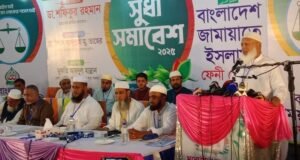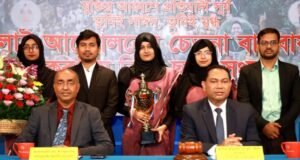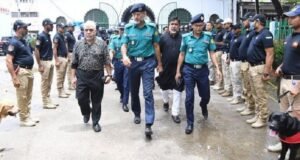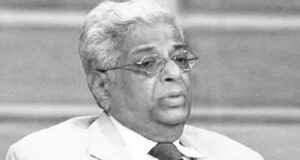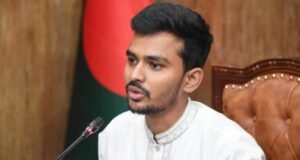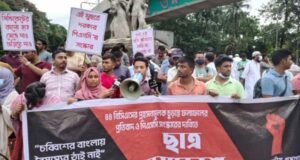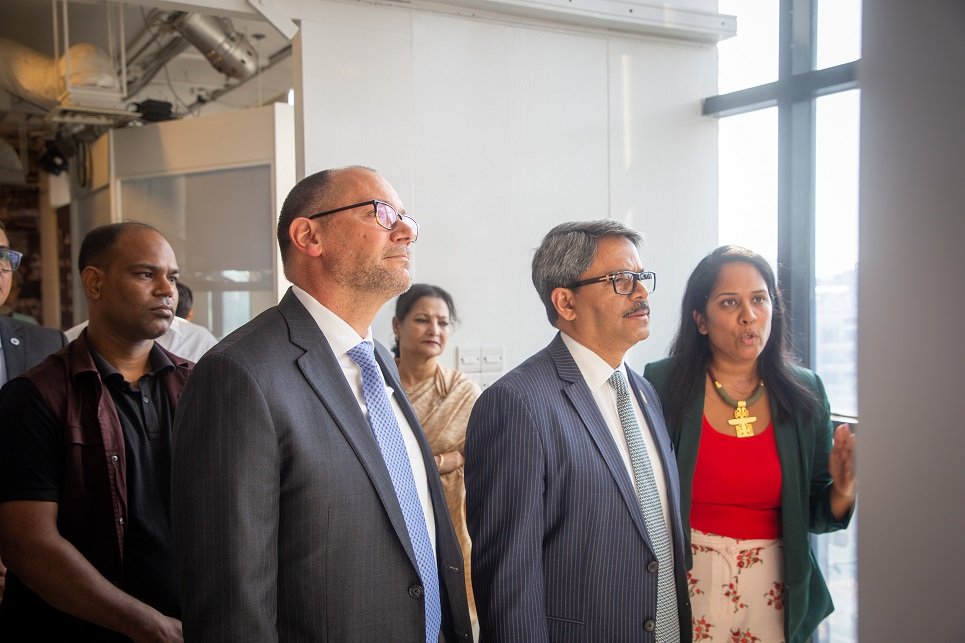
State Minister for Foreign Affairs Md. Shahriar Alam on Tuesday (May 30) said the friendship between Bangladesh and the United States has deepened and broadened to the length that allows the two countries to frankly debate on their differences.
Addressing a special photo exhibition styled, “Roots of Friendship: 50 Years of US-Bangladesh Relations”, he said the growing engagement between the two friendly countries allows them working closely together to mutually benefit from complementarities and alignments.
US Ambassador to Bangladesh Peter Haas also spoke at the event held at the Edward M. Kennedy (EMK) Center at Dhanmondi on Tuesday afternoon.
“Undeniably, the friendship between our countries has deepened and broadened to the length that allows us to frankly debate on our differences while working closely together tomutually benefit from our complementarities and alignments,” Shahriar said.
He also said partnership with the USA in fighting COVID-19 pandemic is a true example of what they can do together. “We appreciate the continued support by the US Government towards Rohingyas temporarily sheltered in Bangladesh.”
However, the State Minister said the long-pending repatriation of Rashed Chowdhury- a self-confessed, convicted killer of Bangabandhu finding refuge in a friendly country like USA remains a source of deep regret.
“In our developmental journey, we have sought and will continue to pivot partnership of regional and global friends, including the USA, with a goal of eradication of poverty and emancipation of our people,” he said adding “I hope our such international engagements will not be seen from a narrow prism and rather be viewed as our pragmatic quest for development.”
In more than 50 years of the independence, Shahriar said “we walked a long way as a nation. Over this period, Bangladesh has achieved middle-income status with hope and aspirations to be a developed and smart country by 2041.”
With three consecutive terms of Awami League government over the past 14 years under the leadership of Prime Minister Sheikh Hasina, Bangladesh has brought over 40 million people out of poverty, he added.
The State Minister said the pro-poor, pro-women policy that led Bangladesh to such success, received support and partnership from the foreign friends, including the USA.
“I cherish our dynamic multifaceted, multidimensional relationship with the US that has evolved over these years and spans from the economic area to security, transnational issues and climate change.”
He recalled what the then Secretary of State John Kerry said standing in this building during his visit to Bangladesh in 2016, and he quoted “..I’m not sure that anyone would have predicted a decade ago that our countries would have been consulting closely on regional security, that Bangladesh would be using American cutters to patrol the Bay of Bengal, and that our shared agenda would include everything from counterterrorism to the environmental health and sustainability of our oceans..”.
Shahriar recalled with deep respect the courageous decision of the then US Consul General in Dhaka Archer K Blood and his team to register their dissent to the US government’s policy that is famously known as the Blood Telegram.
He and his team wrote- “We have chosen not to intervene, even morally, on the grounds that the Awami conflict, in which unfortunately the overworked term genocide is applicable, is purely [an] internal matter of a sovereign state. Private Americans have expressed disgust. We… hope that our true and lasting interests here can be defined and our policies redirected in order to salvage our nation’s position as a moral leader of the free world.”
Like every other democratic movement in this country in the past as well as the ones that followed later, Shahriar said the Liberation War was also led by Bangladesh Awami League with Father of the Nation Bangabandhu Sheikh Mujibur Rahman spearheading.
In this blood-drenched fight for independence, he said “we had received love from peoples of all corners of the world. The freedom-loving people of the USA supported our cause even when their government had other priorities.”
He said the support for Bangladesh by the people of the USA remained strong throughout the War and only grew stronger as people like Senator Edward M Kennedy continued to advocate for the right cause that the people of Bangladesh were fighting and dying for.
 Weekly Bangla Mirror | Bangla Mirror, Bangladeshi news in UK, bangla mirror news
Weekly Bangla Mirror | Bangla Mirror, Bangladeshi news in UK, bangla mirror news


